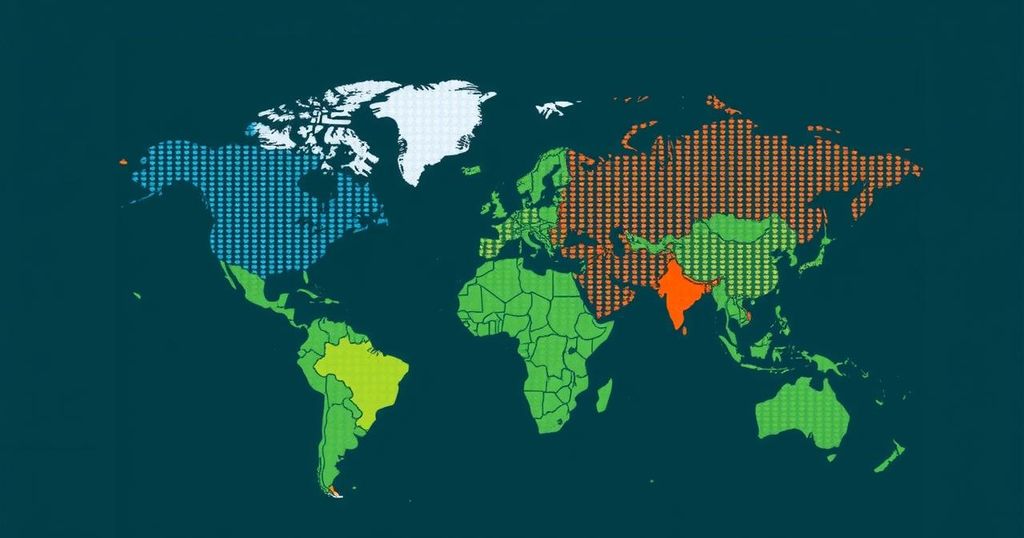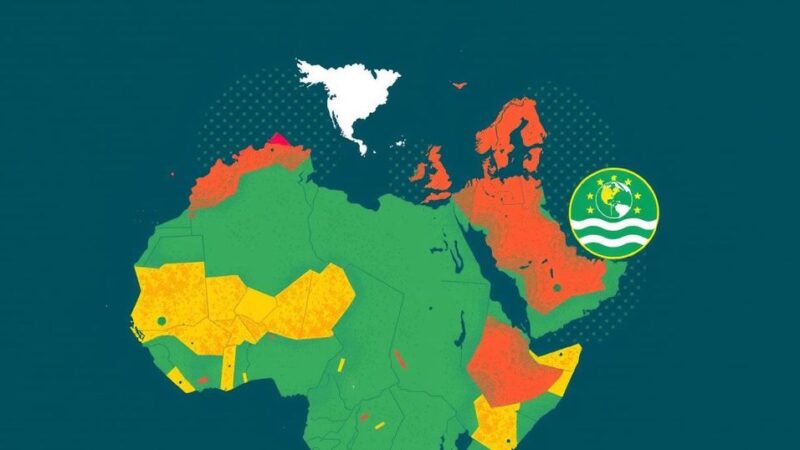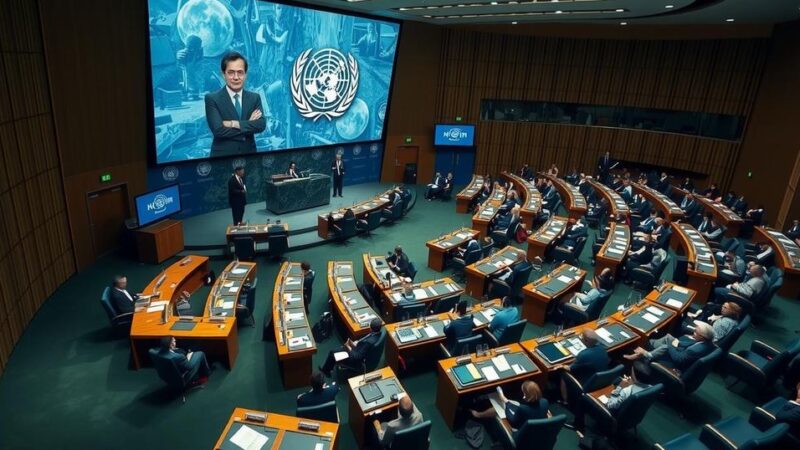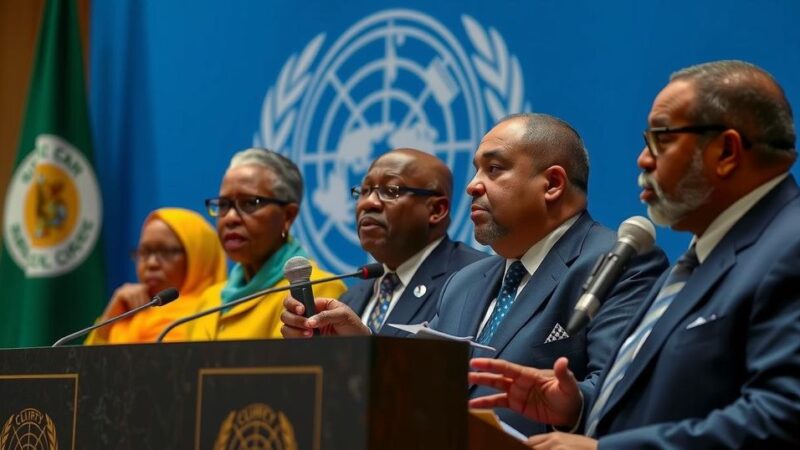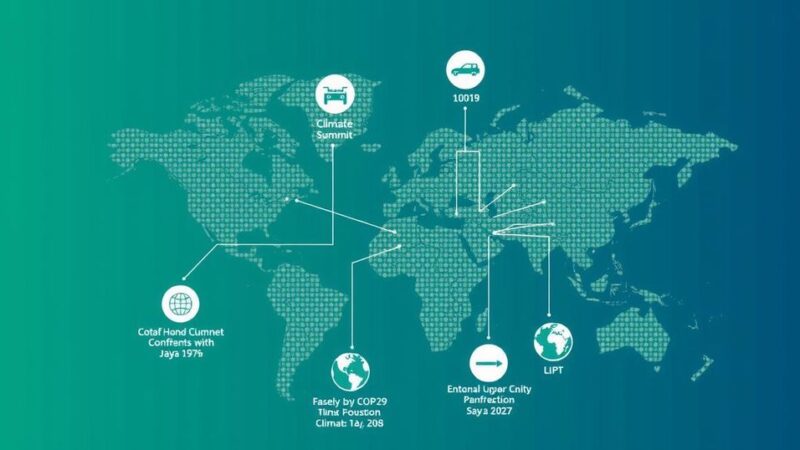Developing nations criticized the $300 billion climate financing deal as inadequate, with prominent voices from India and Sierra Leone expressing disappointment. The agreement, established after extensive negotiations, reflects ongoing divides over financial responsibilities for climate change mitigation and adaptation. Despite a pledge to enhance funding, many argue it falls drastically short of the projected needs, highlighting persistent inequalities in climate finance negotiations.
A contentious climate agreement was approved during recent negotiations in Azerbaijan, with impoverished nations largely dismissing the pledged $300 billion annual fund from developed countries as insufficient. India’s representative, Chandni Raina, criticized the amount as insultingly low, claiming it merely serves as an optical illusion against the overwhelming challenges posed by climate change. Similarly, Sierra Leone’s climate minister condemned the deal, asserting it reflected a lack of goodwill from wealthier nations, including the U.S., while the Marshall Islands envoy acknowledged the funding as a small step amid larger needs. Despite the $300 billion figure representing an increment from previous commitments, many developing countries had sought a more substantial $500 billion to effectively combat climate crises. The negotiations reflected deep-rooted divisions over financial contributions from countries responsible for historical emissions toward those most affected by climate-related disasters.
Countries that participated in the negotiations expressed significant dissatisfaction. High-level officials emphasized the disappointment prevalent among delegations from small island states and least developed countries as well as the African Group of Negotiators. UN climate chief Simon Stiell acknowledged imperfections in the agreement, stating, “No country got everything they wanted,” while UN Secretary-General Antonio Guterres urged nations to utilize this agreement as a foundational platform for future improvements. The $1.3 trillion ultimate goal for climate financing is significantly targeted towards private investments, with the political landscape indicating challenges due to rising skepticism within wealthier nations regarding climate financing.
The climate deal negotiations took place amid a backdrop of intensifying climate-related disasters that disproportionately impact developing nations. The ongoing debates center around the financial responsibilities of historic polluters towards those nations that contribute minimally yet suffer the consequences of climate change. This tension has historically manifested in negotiations, where developing countries consistently advocate for greater financial support to transition to sustainable practices and prepare for climate-induced challenges. The recent agreement underscores the persistent inequalities in climate finance, as many countries in the Global South feel that outcomes do not adequately reflect their needs in combating the climate crisis.
The recent climate agreement, while a step forward, has not met the expectations of many developing nations, revealing significant disparities in climate financing commitments. Wealthy nations’ pledge of $300 billion annually by 2035 is deemed insufficient when compared to the estimated needs of developing countries. With ongoing pressures and skepticism regarding climate action, it is imperative that future negotiations build upon this foundation to ensure more equitable and robust support for those most vulnerable to climate impacts.
Original Source: www.fox28spokane.com
